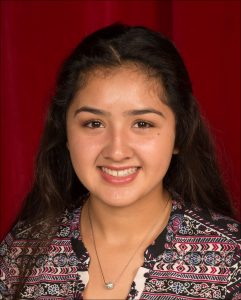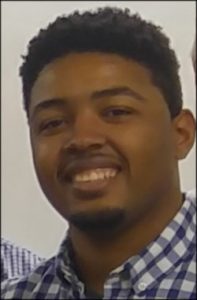Navigating through a major can be challenging for any student, but carving a path can be even more difficult for underrepresented students.
My mentor was the reason I didn’t drop out of college. — Julissa Navarrete
“If students are sitting in a class, and no one else looks like them, they can begin to question, ‘Should I even be here?’” said Associate Director of University College (UCollege) Amy Roser. One of the programs offered through UCollege—the Louis Stokes Alliance for Minority Participation (LS-AMP)—works to provide a community of peers for underrepresented students studying in the STEM fields (science, technology, engineering, and mathematics), and connects students to mentors from supportive faculty and staff. “LS-AMP helps underrepresented students help build community, establish a network of resources, and support through mentorship and opportunities that often assist in navigating their studies and future career,” said Roser.
“My mentor was the reason I didn’t drop out of college,” said animal science major Julissa Navarrete. A junior from Gurnee, Illinois, Navarrete found the transition from high school to college challenging, but found a fellow graduate student through LS-AMP. “She was wonderful, pushed me through, and helped me think positively.”
Navarrete, who applied for LS-AMP her freshman year, noted that the program assisted her in forming study groups with students taking similar classes. “LS-AMP has definitely helped me to keep striving towards my dream job by demonstrating to me that being a minority is not a barrier,” she said. Navarrete plans to work for a large agriculture corporation, or own her own farm facility and open it up to the public.
Getting underrepresented students connected to STEM research projects is also key to LS-AMP, which is funded through the National Science Foundation. A chance to do research was just what Illinois State alumnus Marc Ashford ’16, ’18 needed. “I’ve always been interested in the sciences since I was a child. I have had many hours of observation of the insects that inhabited my yard,” said Ashford, a south suburban Chicago native.
As a biology major, it wasn’t until his senior year that Ashford connected with Assistant Professor of Infectious Disease Ecology Ben Sadd through LS-AMP. “Initially he was surprised to learn about the research going on ‘behind the scenes’ at Illinois State,” said Sadd. Impressed by Ashford’s determination and focus, he encouraged him to pursue research in Professor Rachel Bowden’s and Professor Laura Vogel’s labs. “Community is also at Marc’s heart, which is critical for future communication and appreciation of science,” added Sadd.
Ashford earned a bachelor’s degree in biology and was inspired to continue and earn a master’s degree in biotechnology. He credits much of the inspiration to Sadd. “He was a great mentor and constantly pushed me to work harder and set higher expectations for myself,” said Ashford, who won a national poster presentation from Phi Sigma Biological Sciences Honor Society for his research. “The sense of camaraderie and belonging that I experienced through LS-AMP was definitely instrumental in my success as a student at Illinois State,” said Ashford. “I would definitely encourage others to apply.”
Those looking to apply for LS-AMP must be full-time students at Illinois State, and in good academic standing. Applications can be found on the University College website.



